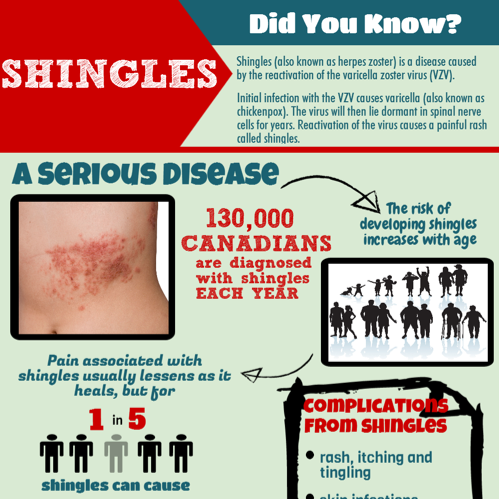Where in Richmond Can I Get Shingles Vaccine
What are shingles vaccines?
There are 2 vaccines, Shingrix® and Zostavax® II, that protect against shingles. Shingles is caused by the varicella zoster virus, which also causes chickenpox. Zostavax® II contains a weakened form of the virus while Shingrix® contains only a part of the virus.
Who should get the shingles vaccine?
Shingrix
- Shingrix® is recommended for adults 50 years of age and older. This includes those who have had shingles disease or received Zostavax® II in the past and those who are not sure if they had chickenpox (varicella) infection in the past.
- You should wait at least 1 year before getting Shingrix® if you have had shingles disease or received Zostavax® II.
- You should not get the vaccine if you currently have shingles disease.
- If you have a weakened immune system, you should discuss getting the vaccine with your health care provider.
- The vaccine is given as two doses, at least two to six months apart.
- The vaccine is not provided for free in B.C. It costs about $150/dose and can be purchased at some pharmacies and travel clinics. Call ahead to ask about vaccine availability. Some health insurance plans may cover the cost of the vaccine; check with your insurance provider. If you are covered by First Nations Health Benefits, please go here.
- The Shingrix® vaccine has been shown to reduce the risk of getting shingles and post-herpetic neuralgia (a type of severe pain that lasts months to years after shingles) by more than 90%.
- For those who still get shingles after being immunized, the vaccine can reduce pain, including the type of pain that lasts after shingles.
Zostavax II
- Zostavax® II may be given to adults 50 years of age and older who cannot get Shingrix® due to a life-threatening reaction to a previous dose of Shingrix® vaccine or any part of the vaccine, or due to the Shingrix® vaccine being unavailable.
- Zostavax® II has been shown to reduce the risk of getting shingles by 50%.
- For those who still get shingles after being immunized, the vaccine can reduce pain, including the type of pain that lasts after shingles.
- Zostavax® II is given as 1 dose and costs about $200. Some health insurance plans may cover the cost of the vaccine; check with your provider.
Talk with your health care provider if you have questions about the shingles vaccines.
What are the benefits of the shingles vaccine?
The shingles vaccines are the best way to protect you from getting shingles. The vaccines have been shown to reduce the risk of getting shingles by 50% for Zostavax® II, and to more than 90% for Shingrix®.
For those who still get shingles after being immunized, the vaccines can reduce pain, including the type of pain that lasts after shingles.
What are the side effects?
The shingles vaccines are very safe.
Common side effects to the vaccines include headache as well as soreness, redness and swelling where the vaccine was given. Itching and a rash may also occur after getting Zostavax® II. Other reactions that may occur after getting Shingrix® include fever, muscle soreness, fatigue, shivering, nausea, vomiting and diarrhea.
It is important to stay in the clinic for 15 minutes after getting any vaccine because there is a very rare possibility, between one in 100,000 and one in a million, of a life-threatening allergic reaction called anaphylaxis. This may include hives, difficulty breathing, or swelling of the throat, tongue or lips. Should this reaction occur, your health care provider is prepared to treat it. Emergency treatment includes administration of epinephrine (adrenaline) and transfer by ambulance to the nearest emergency department. If symptoms develop after you leave the clinic, call 9-1-1 or the local emergency number.
It is important to always report serious or unexpected reactions to your health care provider.
Where can I learn more?
- Read the HealthLinkBC File: Shingles Vaccines.
- Speak to your immunizing health care provider.
About shingles
- Shingles is a painful skin rash with blisters. It is caused by the varicella-zoster virus, the same virus that causes chickenpox. In some people who have had chickenpox, the virus becomes active again later in life and causes shingles.
- You cannot get shingles from someone who has shingles. However, it is possible for someone who has not had chickenpox or the chickenpox vaccine to get chickenpox from someone with shingles. This is uncommon and requires direct contact with the fluid from the shingles blisters.
- About 1 out of 3 people will get shingles in their lifetime.
- Shingles is more common in people over 50 years of age and in those with immune systems weakened by medication or disease.
- Rare complications of shingles include pneumonia (an infection of the lungs), loss of hearing or vision, scarring, inflammation of the brain (encephalitis), or death.
- About 1 in 5 people who get shingles may have severe nerve pain that lasts months to years after the rash has cleared. This is called post-herpetic neuralgia.
Did you know?
About 1 in 5 people who get shingles may have severe nerve pain that lasts months to years after the rash has cleared. This is known as post-herpetic neuralgia.

Where in Richmond Can I Get Shingles Vaccine
Source: https://immunizebc.ca/shingles
0 Response to "Where in Richmond Can I Get Shingles Vaccine"
Postar um comentário